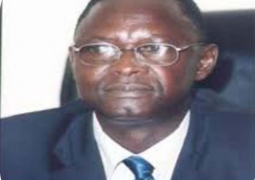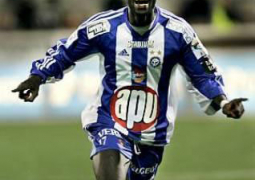The
3rd republic broke through the overcast rule of Jammeh, and released an
extravagant rush of sunny feelings, which climaxed in an Independence Day
celebrations that will reverberate through the decades. The significance of
Independence Day 2017 is perhaps only comparable to that of the original, in
1965. Then as now, we un-burdened ourselves of political impositions which
sought to milk the Gambia for all it was worth. Then as now, the sense that we
have retrieved ownership of our country buoyed up national spirits, and sent
feelings of joy soaring through the rafters. Then as now, expectations, heavy
enough to pull down a Hercules, filled the in-tray of the in-coming government.
The
French philosopher and novelist, Albert Camus, thought that hope was commandeered
by failure. And on his reading, it’d appear that the crushing failure of the
2nd republic called forth this irrepressibly crackling hope we have now
invested in the 3rd republic: my neighbour’s watchman reckons that everything
is going to be all right, so he will not need to go the ‘back-way’, after all.
The other day, in a taxi, I heard two women chatting excitedly, perhaps
wishfully, about how the price of a bag of rice will soon come down to D500!
And many of us, especially those who lost their loved ones under Jammeh’s
regime, cherish the hope that, some day, past injustices will be redressed. But
the one that took the biscuit, for me, was hearing of one petty thief
suggesting to another that they should go steal a ram, because Yahya Jammeh wasn’t
here anymore, and they could conduct their business without any interference
from law and order. Genuine hope, wishful thinking, criminality, dreams of
revenge, hopes of justice – all these, and God knows what else, have coalesced
into a horribly mixed baggage of expectations that no rational agent can
deliver. The imagined can always conjure up more than what reality can furnish.
And we fill in the gaping deficit with disparagement and cynicism.
Sometime
after President Barrow had returned from Senegal, I sat with a few English
friends, over dinner, at a restaurant in Kololi; and at some point in our
conversation, I, perhaps buoyed up by the viral optimism sweeping through the
nation, took off on a gushy rhapsody about the new Gambia and all the wonderful
things the political change will bring. Half way through my ‘rhapsody of fire’,
so to speak, amid sentence – the lights went off: a power cut. We all laughed,
in the darkness. “Welcome to the new, old Gambia”, said one of them, cynically.
The same one who, on the Saturday that Jammeh finally left, said to me, “this
is the best set-settal the Gambia’s ever had!”
Later
that evening, reflecting on the incident of the power cut, I couldn’t help
seeing the whole thing as a kind of trope of the burden of hope. My unbridled
optimism had been pulled up short by practical reality. In our current
circumstances, it seems that one is immersed in the twin sensations of promise
and despair: the promise of what lies ahead and the despair over the fact that
it is not here yet. And lurking just behind the curtains is the more devilish
anxiety: what kind of change, really, lies in store for us? Hope, we are told, is a good breakfast but a
bad supper. Disappointment stalks it every step of the way; for where there is
no hope, there can never be any disappointment. The British philosopher,
Bertrand Russell, fortified himself against disappointment by “building a soul
upon the foundation of unyielding despair, and by so doing gain some measure of
freedom from the burden of hope”.
Speaking
at the oath-taking ceremony of the first batch of appointed ministers, the new
minister of Foreign Affairs, Ousainou Darboe, acknowledged the enormous tasks
before them, but remained beamingly upbeat on the new executive’s ability to
deliver the goods. Exactly what goods they’d deliver wasn’t quite spelled out.
The talk is of good governance, sound economic management, human rights, and so
on; but how these abstractions will translate into public policy decisions
remains to be seen. “Good government is
not grounded in abstract ideas but in concrete situations, and concrete
situations are hard to grasp”; they have a spurious transparency: the reason
why the best laid plans can sometimes yield woeful outcomes. Jammeh left the
nation a “Nationalcrash”, and it will take, at least, a few years before we can
even dust ourselves off. So the impatient, the politically naïve, the dreamers,
wishful thinkers and the like, will form the first wave of the disappointed.
And others will follow. The chattering commentariat, especially on social
media, will provide the sound track, with their penny-a-liner analysis and
wisdom.
The
coalition-government is still trying to find its feet, a process that will take
some time. There will be many mistakes, many false turns, swings and
roundabouts. We can be understanding and yet be vigilant. We can, for instance,
make the observation that reconciliation does not mean shoving uncomfortable
truths under the rug and pretend that nothing happened. Inviting the grandees of
the 2nd republic to our Independence Day celebration was one thing, but to have
given them such centrality of seating, and spicing it up with a public
introduction of the former Vice President, showed a glaring misjudgment of the
mood of the country. The “booing” reaction made the point. Too much water has
passed under the 22-year long bridge, and we cannot pretend otherwise. This
touchy-feely reconciliation will not reconcile anything. Justice is the first
condition of humanity, said Wole Soyinka; and we can extrapolate from his
insight that any form of reconciliation we might achieve in this country will
surely be based on what is JUST. Political judgement should not only be sound,
but also brave, and savvy or worldly. And while we are at it, I wonder if the
promise that president Barrow will step down after three years in office will
be put on a statutory footing, once the new parliament has been constituted.
President Jammeh had not grown into the
vicious tyrant he became through his unaided strength so much as through our
very own un-guardedness. Various national characteristics – “maslah’
(essentially a hybrid between cowardice and moral irresolution), an easy
willingness to “bend the knee before the new born Majesty”, our inclination to
practise virtue in expectation of an earthly recompense – have created a
citizenry who are easy prey to corruption, manipulation, greed, selfishness, and the allied disgraces.
Democracy isn’t something that is usually given from above; rather, it is
something often fought for from below. Its ultimate protection, therefore,
depends on what is below. So the question is not “how did Yahya Jammeh turn
into a dictator?”, but rather, “what kind of people will allow themselves to be
ruled by such a man for so long?” We have as much to answer for as he does.
In
an athletics relay race, conventional wisdom has it that, you hide your weakest
link on the second leg; the very thing that the Gambia seems to have done in
our political evolution thus far. Jawara had a brilliant start, never mind his
shortcomings; Jammeh snatched the baton from him, promising to deliver us from
“rampant corruption”, but ended up delivering us into rampant carnage. We
wrestled back the baton from him, and handed it over to President Barrow. But
now, how will Barrow run the 3rd leg, will the taste match the appetite, so to
speak?
My
answer will depend on what I think democracy is and what my expectations are.
One of my favourite Churchillisms (quotes by Churchill) is this: “many forms of
Government have been tried, and will be tried in this world of sin and woe. No
one pretends that democracy is perfect or all-wise. Indeed it has been said
that democracy is the worst form of Government except for all those other forms
that have been tried from time to time”. Democracy proceeds by persuasion, not
coercion. Its gains are slow, mostly mixed and come piecemeal, not wholesale.
Some of its outcomes can be as gladdening as they can be frustrating (compare
Obama’s election to Trumps’s). And while it has made admirable strides in
encouraging political equality, it has not been able to make similar strides in
the direction of economic equality. If anything, democracy is process-based,
not outcome-based. The theory is that if you get your processes right, then the
prosperities will follow. But, as everyone knows, theory and reality have a
funny relationship. One can superficially have ‘processes’ in place, but if
attitudes and practices are not adapted to serve them, then the prosperities
will always elude us. And when that happens we become disappointed with
democracy, rather than with ourselves. A bit like the chap who, on reading
about the horrible effects of smoking, decided to give up, not smoking but
reading!
I try not to look too far ahead, because I
have been warned that “the chain of destiny can only be grasped one link at a
time”. So, first things first: our public institutions have been virtually
hollowed out of talent, and deformed beyond recognition. We must return the
talent, and restore the institutions to their autonomous ideal. We must defend
civil society and speak out against the abuses of power. Authority need not be
authoritarian. And one would like to think that our recent experience has
purged us of the servility, the opportunism, and that we have asserted “a fresh
mode of self-realisation”, undergirded not by greed or the lust for power but
simply by our commitment to a way of life.
Momodou Alieu Sidi M’boge



